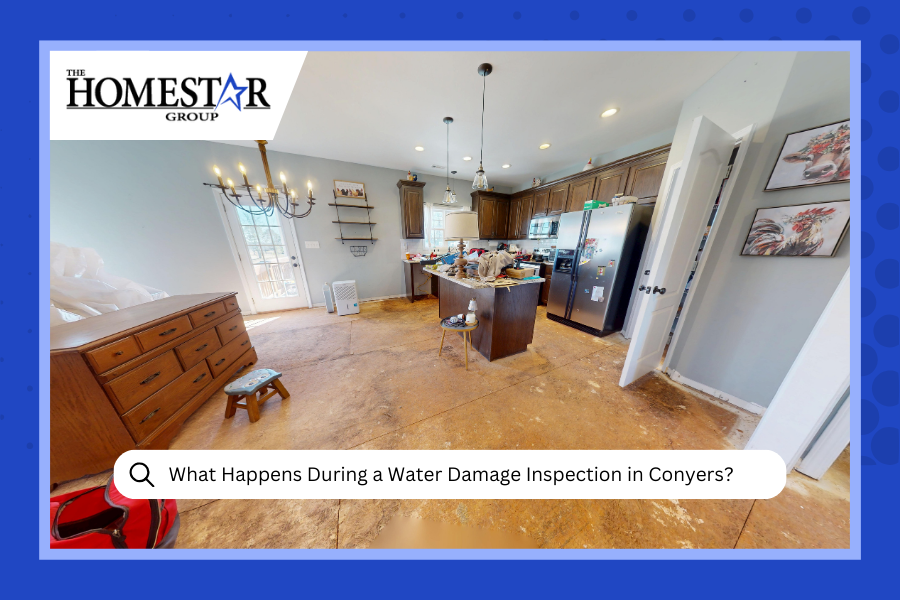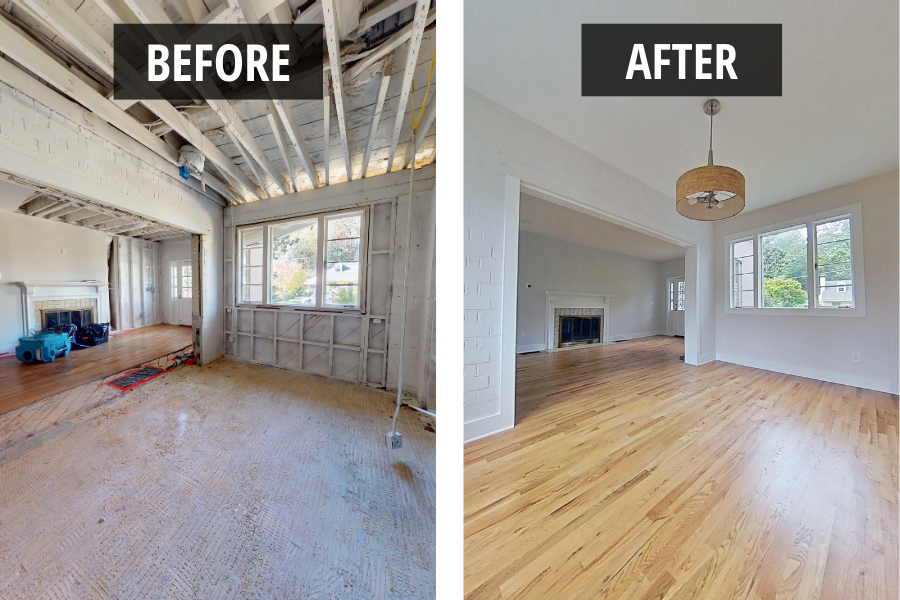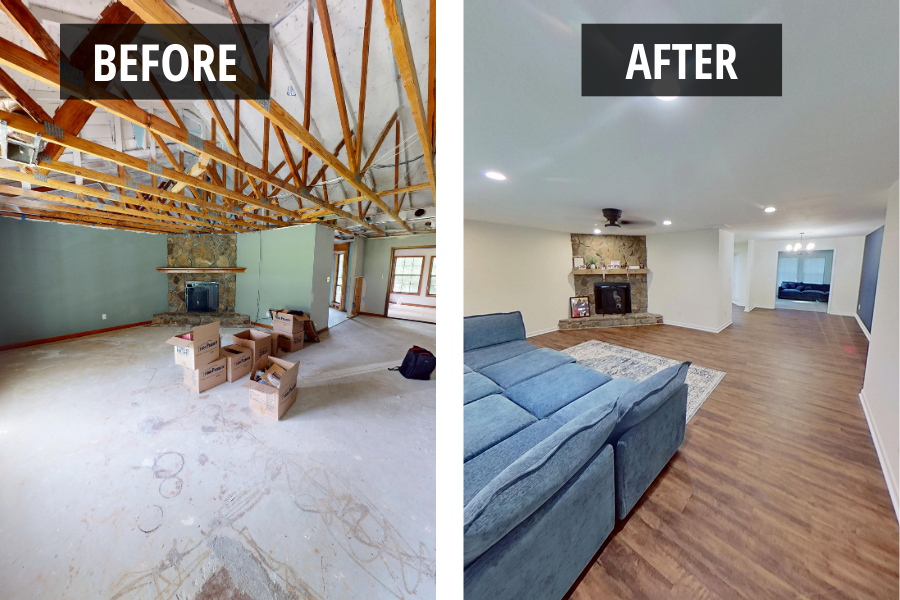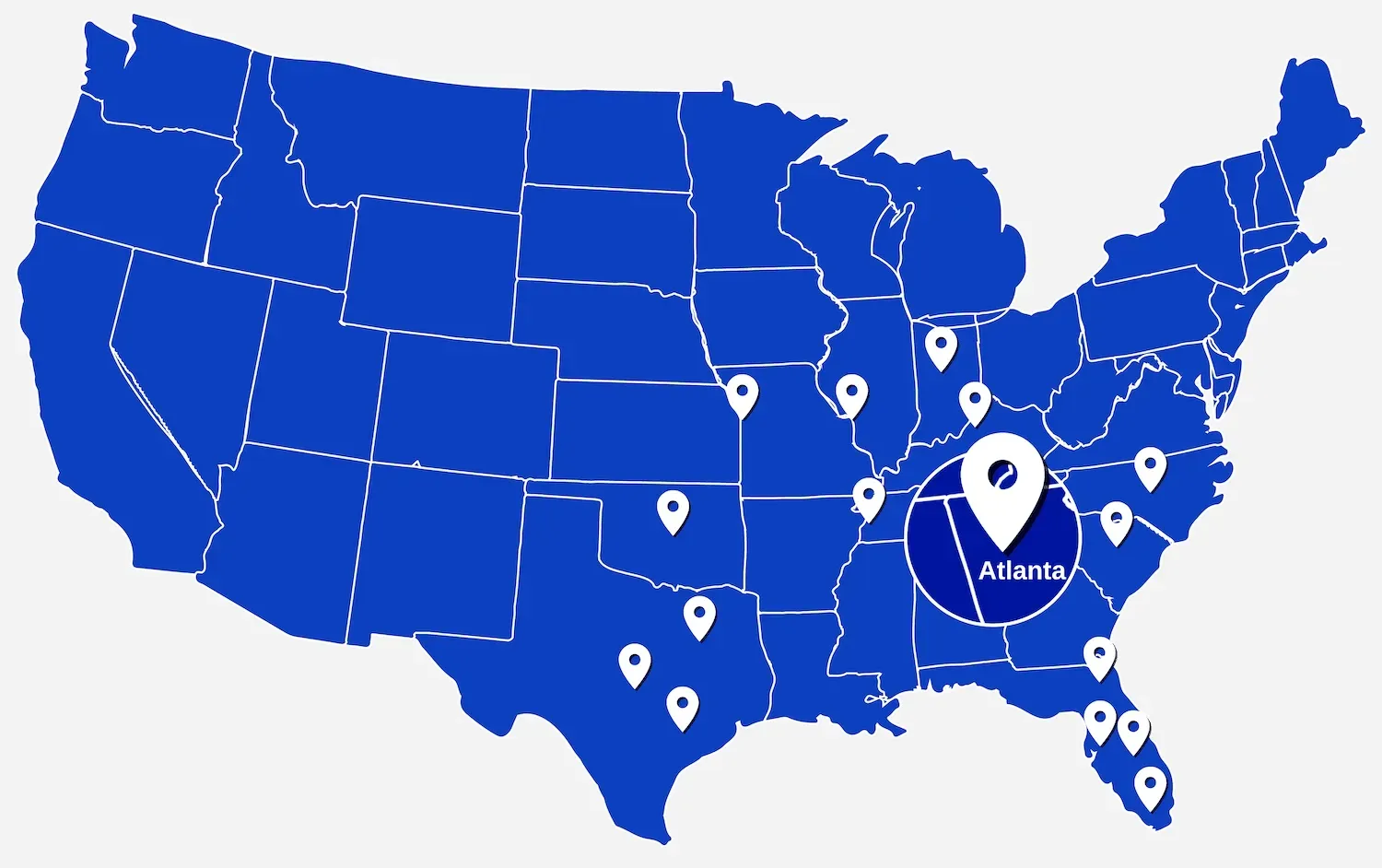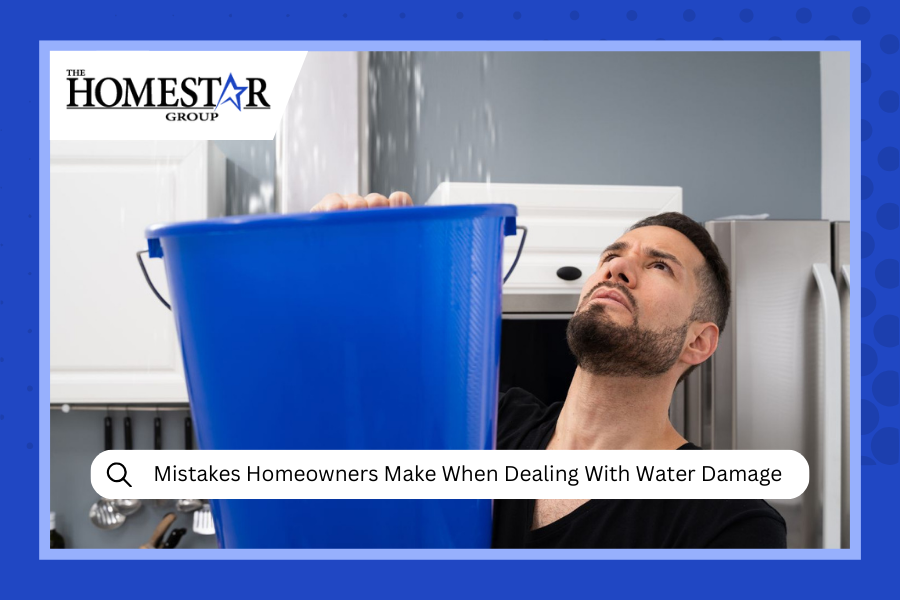
Top 5 Mistakes Atlanta Homeowners Make When Dealing With Water Damage
Jump to Section:
Water damage can turn your peaceful Atlanta home into a soggy nightmare faster than you can say "Peachtree Street." Whether it's from one of our famous Georgia thunderstorms or a sneaky pipe that decides to give up the ghost, water damage doesn't mess around. And neither should you. When disaster strikes, having professional water damage restoration services on speed dial can make all the difference between a quick recovery and a long, costly nightmare.
We've been helping Atlanta homeowners bounce back from water disasters for over 15 years, and trust us, we've seen it all. From flooded basements in Stone Mountain to kitchen disasters in Marietta, our team has witnessed some pretty creative (and costly) mistakes. The good news? Most of these blunders are totally avoidable if you know what to watch out for.
Understanding common causes of water damage can help you prevent many of these situations entirely.
Let's dive into the top five mistakes we see Atlanta folks make when water decides to crash their party, and more importantly, how you can dodge these pitfalls like a pro.
Mistake #1: Playing the Waiting Game
Picture this: you walk into your kitchen Monday morning, and there's water everywhere. Your first thought? "Maybe it'll dry up on its own." We get it. Nobody wants to deal with a water emergency before their morning coffee. But here's the thing about water damage – it's like that annoying house guest who just gets more comfortable the longer they stay.
Water doesn't take breaks. Every minute you wait, it's busy seeping deeper into your floors, walls, and furniture. In Georgia's humid climate, you've got about 24-48 hours before mold starts throwing its own housewarming party. And trust us, mold is not the kind of guest you want to stick around.
According to the EPA's Brief Guide to Mold, Moisture and Your Home , it's important to dry water-damaged areas and items within 24-48 hours to prevent mold growth, making immediate action critical for preventing long-term damage.
The Cost of Waiting: Water Damage Timeline
Hours: Water absorption begins, materials start to swell
Hours: Mold growth begins, odors develop
Hours: Serious structural damage, expensive repairs needed
Week: Complete material replacement often required
What you should do instead: Act fast. Document the damage with photos, turn off the water source if possible, and call professionals immediately. Our emergency response services are available 24/7 because we know water damage doesn't wait for business hours.
If you're unsure whether your situation constitutes an emergency, check out our guide on early water damage signs to help you assess the situation.
Mistake #2: Going Full DIY Warrior
Look, we love a good DIY project as much as the next Georgian. But when it comes to serious water damage, this isn't the time to channel your inner home improvement hero. We've seen homeowners try everything from shop vacs to hair dryers (yes, really) to tackle major water problems.
Here's the reality check: effective water damage restoration requires specialized equipment and expertise. Those industrial-grade dehumidifiers and moisture meters aren't just fancy gadgets – they're essential tools that can mean the difference between a successful cleanup and a moldy mess down the road.
Professional restoration involves more than just removing visible water. We're talking about:
- Moisture detection in hidden areas
- Proper ventilation and dehumidification
- Antimicrobial treatments
- Structural drying techniques
Pro tip: Save the DIY spirit for weekend projects. When your home's structural integrity and your family's health are on the line, it's worth bringing in the experts.
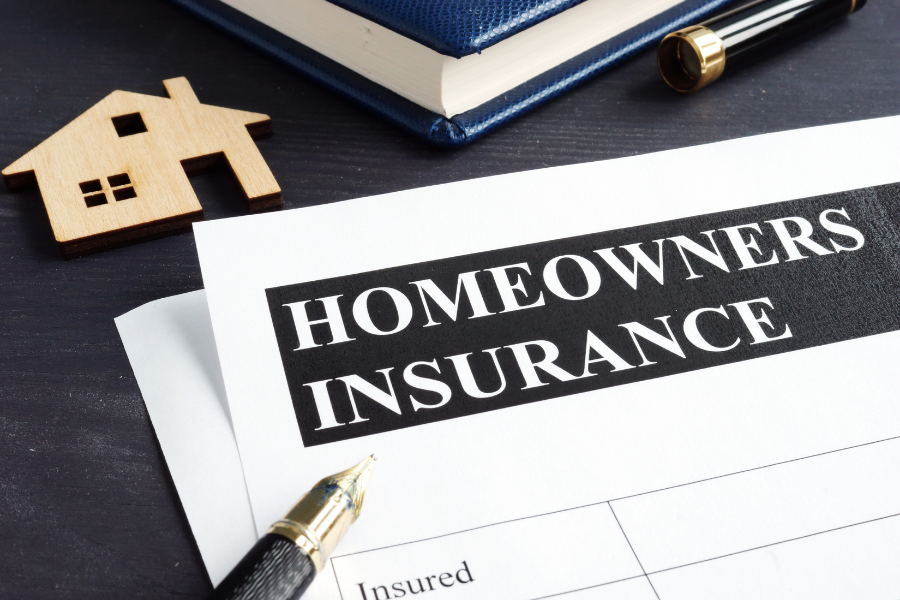
Understanding your homeowners insurance coverage is crucial when dealing with water damage claims and can help avoid costly mistakes.
Ready to skip the stress and get professional help?
Our IIRC-certified team is standing by 24/7.
Contact us todayGet a free estimate and let us handle the heavy lifting.
Mistake #3: Skipping the Insurance Dance
Nobody enjoys dealing with insurance companies, but trying to handle water damage without involving your insurance is like trying to eat barbecue without getting your hands messy – theoretically possible, but you're missing out on some serious benefits.
Many Atlanta homeowners either don't call their insurance at all, or they wait too long to file a claim. Others make the mistake of accepting the first settlement offer without understanding their full coverage. We've helped countless families navigate the insurance maze, and we can tell you that proper documentation and professional assessment can make a huge difference in your claim's outcome.
| Water Source | Typically Covered? | Insurance Type Needed |
|---|---|---|
| Burst pipes | Yes | Standard homeowners |
| Appliance leaks | Usually | Standard homeowners |
| Roof leaks (sudden) | Yes | Standard homeowners |
| Sewer backup | Often excluded | Sewer backup rider |
| Flood (external) | No | Separate flood insurance |
Here's what you need to know:
- Document everything immediately with photos and videos
- Keep receipts for any emergency purchases
- Don't throw away damaged items until your adjuster gives the okay
- Work with restoration professionals who understand insurance processes
The Insurance Information Institute reports that about one in 60 insured homes has a property damage claim caused by water damage or freezing, making proper documentation and professional assessment crucial for successful claims.
We work directly with insurance companies and can help streamline the claims process. Having a restoration company that speaks "insurance" can save you time, money, and a whole lot of headaches.
To understand more about your coverage options, read our guide on whether homeowners insurance covers water damage.
Mistake #4: Focusing Only on What You Can See
Water is sneaky. Really sneaky. Just because you can't see it doesn't mean it's not there, plotting its next move behind your walls or under your floors. We call this the "iceberg effect" – the damage you can see is often just the tip of a much bigger problem.
In Atlanta's older homes, water can travel through wall cavities, under hardwood floors, and into crawl spaces you forgot you had. Moisture trapped in these hidden areas is like a ticking time bomb for mold growth and structural damage.
Signs of hidden water damage include:
- Musty odors
- Discolored walls or ceilings
- Warped or buckling floors
- Increased humidity levels
- Unexplained increases in water bills
Professional water damage assessment uses thermal imaging and moisture meters to detect water in places your eyes can't reach. It's like having X-ray vision for your home's water problems.
Mistake #5: Ignoring the Mold Factor
Here's something that might surprise you: mold can start growing in as little as 24-48 hours after water damage occurs. In Georgia's humid climate, those conditions are practically perfect for mold to set up shop and start a family.
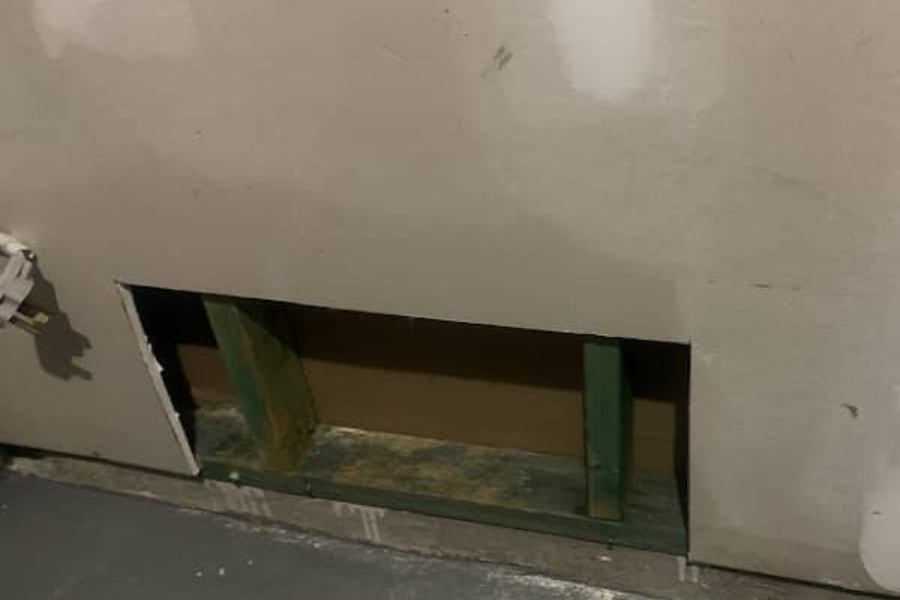
Mold growth behind drywall is a common consequence of untreated water damage, highlighting the importance of professional moisture detection and treatment.
Many homeowners focus solely on drying out the visible water and call it a day. But without proper mold prevention measures, you could be setting yourself up for a much bigger problem down the road. Mold doesn't just damage your property – it can impact your family's health, especially for those with allergies or respiratory issues.
Effective mold prevention requires:
- Complete moisture removal, not just surface drying
- Proper ventilation and air circulation
- Antimicrobial treatments in affected areas
- Ongoing monitoring for several days after the initial incident
Don't let mold turn your water damage recovery into a long-term health hazard. Professional restoration includes mold prevention as a standard part of the process.
For more information on identifying potential mold issues, check out our guide on what water damage mold looks like.
Get Professional Water Damage Help NowThe Bottom Line: Don't Go It Alone
Water damage can feel overwhelming, but you don't have to face it solo. The mistakes we see most often stem from homeowners trying to tackle too much on their own or waiting too long to seek help. We get it – nobody wants to deal with the hassle and expense of a water emergency. But acting quickly and getting professional help from the start can actually save you time, money, and stress in the long run.
At The Homestar Group, we've been helping Atlanta families recover from water damage for over 15 years. We know the unique challenges our Georgia climate presents, and we're here to guide you through every step of the process – from that first emergency call to the final walkthrough of your restored home.
Looking for more prevention tips? Our comprehensive guide on how to prevent water damage in your Atlanta home offers practical strategies to protect your property year-round. And if you need professional help choosing the right restoration company, read our guide on how to choose a water damage restoration company.
For immediate assistance or questions, contact our team - we're here 24/7 to help Atlanta homeowners restore their peace of mind.
Frequently Asked Questions
What are the biggest mistakes to avoid immediately after discovering water damage in my Atlanta home?
The most critical mistakes are waiting to act (mold can start growing in 24-48 hours in Georgia's humid climate), attempting major DIY cleanup without proper equipment, and failing to document everything for insurance purposes. Turn off water sources immediately, take photos, and call professionals rather than trying to handle significant water damage yourself with household tools.
Should I accept my insurance company's first settlement offer for water damage, or are there common mistakes in this process?
Many Atlanta homeowners make the mistake of accepting the first offer without understanding their full coverage or having professional damage assessment. Insurance adjusters may miss hidden damage behind walls or under floors. Working with IIRC-certified restoration professionals who understand insurance processes can help ensure all damage is properly documented and covered.
How do I avoid the mistake of missing hidden water damage in my home after a flood or leak?
Don't rely on visual inspection alone. Water travels behind walls, under floors, and into crawl spaces common in Atlanta homes. Professional restoration uses thermal imaging and moisture meters to detect hidden water. Signs you might be missing damage include musty odors, unexplained humidity, warped floors, or discolored walls and ceilings.
What's the biggest mistake Atlanta homeowners make regarding mold prevention after water damage?
The most common error is thinking the job is done once visible water is removed. In Georgia's humid climate, moisture trapped in hidden areas creates perfect conditions for mold growth. Effective prevention requires complete moisture removal, antimicrobial treatment, proper ventilation, and ongoing monitoring for several days after the initial incident, not just surface-level drying.

